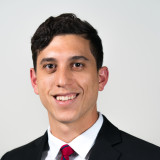What do Yo Yo Ma, Michael Jordan, and Bill Gates have in common? They are exemplars of success and expertise, but — or maybe because — they all had coaches. In fact, most settings demanding elevated human performance in high stakes environments (e.g., athletics, music, business, and executive leadership) heavily involve the use of coaches. Although surgeons are rigorously coached through residency, once formal training ends, so does coaching.
The idea that surgeons should have coaches is not new. In his essay “Personal Best” published in the New Yorker in 2011, Atul Gawande made a robust case for coaching in surgery using illustrative examples from other disciplines. He subsequently helped start a surgical coaching program called SCOPE. The University of Wisconsin Surgical Outcomes Research Program has published numerous peer-reviewed articles on surgical coaching, going so far as to create the Academy for Surgical Coaching, a non-profit organization that pairs interested surgeons with trained surgical coaches. Despite these efforts, there is no well-established culture or system for coaching in surgery after training concludes.
In the current era, most performance improvement in surgery is self-driven. There are opportunities to operate with an assistant or co-surgeon, attend conferences, or discuss difficult cases with colleagues, but directed feedback from a peer or an expert, something that I fortunately receive multiple times per day as a resident, becomes essentially nonexistent as an attending. To be sure, most surgeons are involved in self-reflection, deliberate practice, and experiential analysis that engenders professional development. They are constantly changing in response to their experience and their patients, always asking what can be done better, always shifting practices — all behaviors that human performance scholar Anders Erikson has established as critical to achieving mastery. Importantly, this self-improvement is not limited only to technique in the OR, but can be expanded to encompass leadership, time management, communication, and more. Yet no matter how well-trained and how introspective, few can attain their best performance on their own. The vast majority reach a plateau. The perspective of others is crucial in the path towards refinement, reflection, and improvement.
Even if surgical coaching were to be implemented on a widespread scale, how would we know that we have progressed past our former plateaus? Would we be able to measure the benefits of formal coaching? Perhaps not. Standardized reporting of surgeon outcomes measures is not widely practiced. Unlike the sabermetrics of baseball, where every hit, run, and catch is captured and analyzed, most surgeons nor their patients know where they lie on the performance bell curve. Hospital performance metrics are tracked and reported largely for insurance and billing purposes, but informative metrics individualized by surgeon are typically not tracked, although some hospitals may have systems in place to do so. For example, knowing your rate of recurrent laryngeal nerve palsy after thyroidectomy and quantifying how that rate has changed over time in practice is very useful information. It would also be useful to compare these metrics to those of other surgeons, to identify where more coaching and refinement may be required. For a surgeon and their coach, granular outcomes data and surgical metrics could be invaluable in surgical quality improvement.
Yet there are also obvious pitfalls to tracking these sorts of data points. What if, like an athlete having a bad season, the numbers reveal you are in a slump for unknown reasons? What happens if you are in the 20th percentile on a key surgical metric compared to your peers? Do you lose the opportunity to perform surgery and to improve because of poor performance on a reported metric? What if surgeons start to shift practice based on metrics rather than true quality, which has certainly happened with Medicare and U.S. News performance measures? Are the data anonymized, and to whom? If the performance data do exist, are we obligated to share it with the patient? While there are many obvious benefits to tracking and acting on performance data, these questions and others bring up many challenges.
In residency, I relish the many opportunities to be coached. The constant feedback I receive drives me to learn and grow every single day. I thoroughly enjoy operating with the most particular attending surgeons, because I know their constant badgering and critiquing makes me better in the end. Just as Michael Jordan continued to have a coach after many years of successful professional play in the NBA, I too hope to have one far into my surgical career.
What are your thoughts on coaches for surgeons? Share your opinions in the comments.
Dr. Benjamin Ostrander is a current otolaryngology resident at UC San Diego. He loves beach days, long bike rides, cooking elaborate recipes, and playing music. Ben is passionate about art and design, creativity, surgical innovation, and global health. Ben is a 2021–2022 Doximity Op-Med Fellow.
Illustration by April Brust







